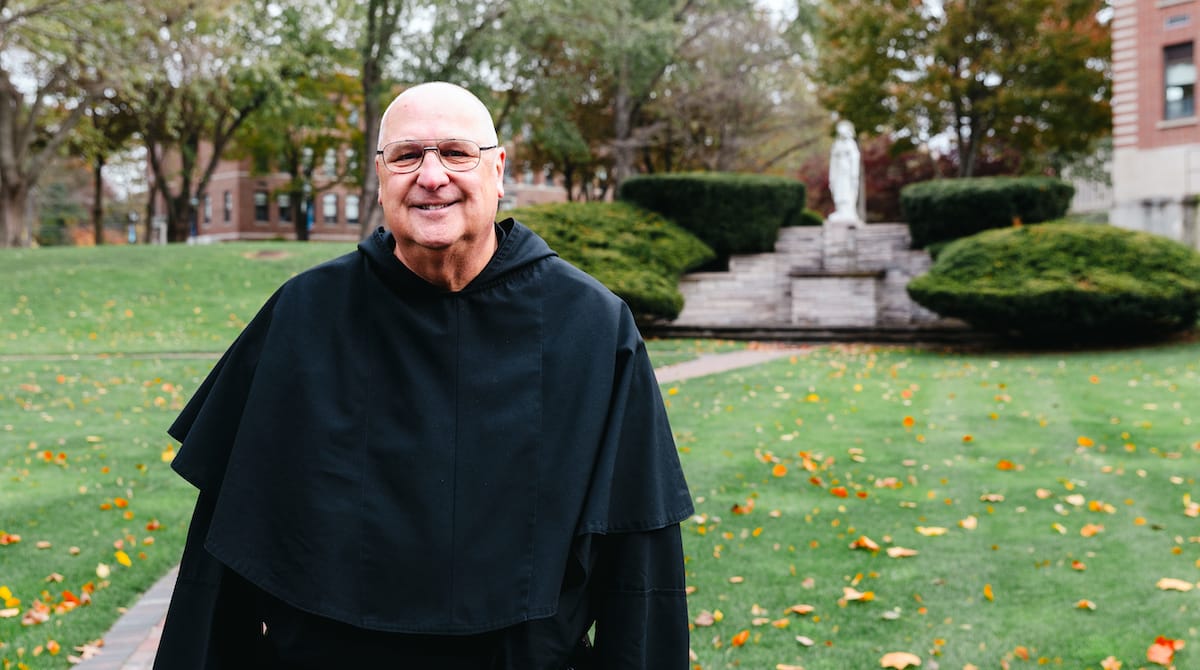The Merrimack College/Winston School American Teacher Survey of K-12 educators, delivered in partnership with Education Week, is part of an ongoing effort to track the pulse of the teaching profession. The survey highlights and promotes teachers’ voices and perspectives regarding some of the most important and complex issues in U.S. schools.
The Merrimack College Teacher Survey found that American K-12 teachers feel overworked and dissatisfied in their jobs and are struggling with diminished mental health and wellness support.
Say Their Mental Health and Wellness is Impacting Their Work
Very/Fairly Likely to Leave the Profession Within 2 Years
For the second year, a study from the Winston School of Education and Social Policy at Merrimack College highlights a pressing crisis in American K-12 education.
Data from the second annual Merrimack College Teacher Survey shows that more than half of current teachers would advise their younger selves not to pursue the profession, and more than a third of teachers say they are likely to leave the profession in the next two years.
While this should serve as a flashing red light to educational policymakers, the survey also provides insights into strategies that educational administrators and policymakers can employ to address this. By prioritizing teacher mental health and well-being, and taking steps to build teacher morale, academic leaders can help create a healthier and happier school environment and retain more of their teachers. The survey also provides insights into how these learnings can be incorporated into teacher and school administrative programs.

Teaching is one of the toughest jobs in America, and the pandemic has only made it harder. New teacher retention is at an all-time low and fewer and fewer students are considering entering the teaching profession. The Merrimack College Teacher Survey found that teachers feel overworked, underpaid and not respected by the public.
Through this survey, and by hearing teachers’ voices and perspectives, the Winston School of Education & Social Policy is committed to solving and reversing these issues.
In reviewing the responses of the 1,178 K-12 participants, here’s what we learned:
Nearly half (42 percent) say their mental health and wellness is having a negative impact on their work. The teachers who struggle most with their mental wellness are most likely to say their students’ mental wellness is negatively impacting student behavior and learning.
To support teachers’ mental well-being, districts or schools need to look into pay raises or bonuses to reduce financial stress. In addition to class size reductions and more/better support for student discipline.
Future leaders need to learn to listen better and value teachers’ perspectives, to learn to be more flexible when it comes to scheduling and taking time off. And to build morale, especially in ways that feel authentic to acknowledge the hard work of individuals.
The Merrimack College Teacher Survey gathered perspectives from 1,178 teachers, who averaged 54 hours worked per week and includes the following results:
Very satisfied with their jobs.
Very/fairly likely to leave the profession within 2 years.
Feel respected by the general public.
Feel their mental health and wellness is having a negative impact on their work.
Fairly or very likely to advise their younger selves to choose teaching again.
K-12 American teachers participated in the survey.
The Issue |
The Solution |
|---|---|
Teachers’ Mental Health42% of teachers feel their mental health and wellness is having a negative impact on their work. Teachers are overworked, underpaid and under-appreciated for the professionals that they are. Just 20% of teachers are very satisfied with their job, compared to 62% in 2008. |
Mental Health and Wellness ResourcesWe must prioritize the mental health resources for teachers to feel supported in their jobs by creating mental health and wellness programs to support both teachers’ and students’ mental health. We must acknowledge the mental health concerns and create programs to help both teachers and students. |
Teacher Involvement in Scheduling and PoliciesTeachers are looking for more autonomy over their own work, including having a bigger say in academic scheduling and school policies. |
Teachers are ProfessionalsTeachers tend to be more satisfied when they experience higher levels of autonomy over their work. We must acknowledge that teachers are professionals, and can help provide guidance over their schools’ policies or their own schedules—including which classes they teach and if/when they take on additional duties such as recess supervision. |
Explore media coverage of this survey.

Survey conducted by Merrimack shows many teachers dissatisfied.
Visit WCVB for Story

Crying need for support as pandemic weighs on students, teachers alike.
Read Article
Merrimack’s Winston School of Education and Social Policy strives to transform the field of teacher preparation and retention by providing national thought leadership and research, yielding valuable insights to educators and policymakers in today’s complex and evolving K-12 educational environment.
Merrimack College is a private college in North Andover, Massachusetts that offers more than 100 career-focused undergraduate, graduate, and professional programs, all taught by faculty who are passionate about their subjects.
Merrimack College has received several accolades and recognitions, including U.S. News & World Report Best Regional Universities, North Most Innovative Schools (#3) and Money Magazine’s Money’s Best Colleges 2020, and has been recognized by the Chronicle of Higher Education for having one of the nation’s fastest-growing private master’s programs.
Dan Sarofian-Butin, Ph.D., is a full professor in, and was founding Dean of, the Winston School of Education & Social Policy at Merrimack College. Dr. Sarofian-Butin is the author and editor of 100+ academic publications, including eight books, several of which have been translated into three languages. His scholarship focuses on civic and community engagement, teacher preparation, and higher education policy. He has been one of the top 200 “Public Presence” Education Scholars, consulted for, among others, the US Department of Education, the National Science Foundation, and the American Association of Colleges & Universities (AAC&U), and written for publications as varied as InsideHigherEd, Education Week, the Huffington Post, and the Times Higher Education. Prior to working in higher education, Dr. SarofianButin was a middle school math and science teacher and the chief financial officer of Teach For America.
This month Fr. Raymond Dlugos, O.S.A., vice president for mission and ministry, marks the 40th anniversary of his ordination into the priesthood and the Order of St. Augustine, a vocation that has given him ministerial duties around the world.
